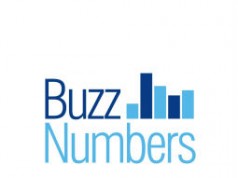A lot.
If we stop to think for a moment, it is impossible to divorce Generation Y from many of the changes we are seeing in the world. In a sense, this generation is the bloodstream of change in the world, and while it’s all well and good to have people in your organisation who have their finger on the pulse, Gen Y are the pulse.
They have been instrumental in driving Web 2.0 (Twitter), social networking (Facebook), new open intellectual property protocols like Creative Commons, user-generated content like YouTube, and up-ending old business models like those in the music industry through BitTorrent file-sharing sites like Pirate Bay. In tune with their narcissistic tendencies (evidenced by their constant status updates), their older work colleagues have collectively cringed at Gen Y’s self-actualising ambitions – parents have bailed them out of their credit card debts and Australia’s old bricks and mortar dream has been crushed by a generation that doesn’t want to get tied down by a mortgage (perhaps wisely so).
How does this relate to the present zeitgeist of the economic downgrade?
Well, 73 percent of Gen Ys in 2008 were estimated to be in serious financial debt, 33 percent of credit card applications in Australia came from Gen Ys, 20 percent of Gen Ys in Victoria under the age of 25 still lived at home and, contrary to popular belief, many Gen Y women actually had a superannuation plan – 83 percent of them planned to live off their partner after the age of 50. Disturbingly, so did 73 percent of their male counterparts.
Now, it may be wise to say that, just like any generation before them, Gen Ys are a product of their times. Or perhaps the times are a product of the generation whose thinking version shapes it most dynamically?
Either way, it’s little wonder that Gen Ys seem frivolous with their money, seeing that they grew up in an era of dot-coms, sub-prime mortgage debacles, excessive executive pay, and 17 years of unprecedented economic growth.
Perhaps their way with money should have been a collective warning sign for all of us that things were going astray…
Here are some of the ways in which the demographic born between 1979-1994 is impacting and being impacted on by the economic downgrade:
The new economic environment is a totally new ball game for Gen Ys, one in which they will need to learn to manage their bank balances more responsibly. In the past, many were used to their parents guaranteeing their mobile phone contracts. Now they may not find that the same buffer exists.
We will see a further deepening of the mistrust for financial institutions, and may see a move toward social networking based finance like Peer-to-Peer lending, which is perceived as more transparent and ‘high trust’, and in tune with the Gen Y obsession with openness and transparency.
On the other hand, because of hitherto unaffordable real estate in Australia’s major cities, a large proportion of Gen Ys have opted to stay at home well into their 20s, and few own sizeable share portfolios (neither superannuation nor saving for a rainy day has been as high a priority as backpacking in Nepal or a new pair of designer jeans).
In this sense, Gen Ys are more financially cushioned both in the short and long term than, say, Baby Boomers on the verge of retirement.
Gen Ys with insight will see this downgrade as a bump in the road and learn from the experience. While many have shed their dreams of a fulfilling job at least temporarily, this economic shift will also test their flexibility in thinking and ability to navigate a constantly changing business landscape – something they are eminently suitable for seeing that they in many ways have upended traditional business models like music, media, entertainment and design. Financial services, banking and legal may be next.
I think this shakeout will shape the future of banking and lead to greater corporate transparency, and this is something that is in tune with the Gen Y values system. Seeing the redundancies and corporate collapses first hand will lead to a new wave of entrepreneurialism among this creative and innovative generation, as they will be keen to take charge of their own destinies. In a sense, the financial crisis proves that the Gen Y focus on living and spending for today is ‘correct’ – I mean, imagine saving for your superannuation for your whole life and then having a sub-prime mortgage debacle wipe out a life-time worth of savings?
Equally, starting up your own company has never been more affordable than now, and through social networking tools like Facebook, MySpace, and Twitter, communications and PR campaigns have been democratised.
They are typically for intellectual property-infringing file-sharing. They get the web 2.0 mindset. They collaborate virtually and, having lived, breathed and dreamed online computer games, they are adaptable and team-oriented.
So what good will come out of Gen Y from this crisis?
It will bring to the surface their innovative bent, their creativity will shine through, and smart organisations will look to their Gen Ys for input into ‘out of the box’ marketing and branding campaigns that resonate with what will be Australia’s largest consumer group by 2020. We will also see a greater focus not on regulation to steer the financial system, but transparency. Gen Ys have lived their entire lives for all to see on the web, and expect the same in return from the organisations they work for and invest in. The financial downgrade is also a great time for Gen Ys to upgrade their thinking – to learn, to observe and to position their own business brains in profoundly connected ways so that they are in pole position when the economy turns again.
I am expecting that they will step up to the plate – if their employers won’t let them, they will leave, because deep down many Gen Ys believe that they are better equipped to run a business than the guy in charge.
At the moment, mass myopia is affecting human behaviour. While there is no doubt access to finance is impacting the economy, the question is how much of it is a reality and how much is just a crisis in confidence.
It takes a lot for people to actually change their behaviours – a study shows that 90 percent of coronary bypass patients go back to their old life-style patterns within two years of the surgery. We may see people pay off their credit cards or boost their savings accounts with the ‘stimulus package’ now, but even rapid change does not necessarily lead to long-term behavioural change. We thought we had learnt from 1987, 1997 and 2001, yet the current financial crisis shows that we are still affected by speed-blindness and greed.
Having said that, members of my family who were exposed to the Great Depression were deeply affected by it and learnt to always freeze their left-overs and put money in the mattress. That may once again prove a wise move, but I doubt a Gen Y will tweet that they ‘just froze three kilos of hand-picked mushrooms’. Then again, I just bought a lime-tree to make myself self-sufficient in Caipiroskas.
* This post is a companion piece to Anders Sorman-Nilsson’s feature article on Generation Y in the April 09 quarterly print edition of Australian Anthill Magazine.
Anders Sorman-Nilsson is a reformed lawyer, a Gen Y Devil’s Advocate and the principal agent provocateur at Thinque who challenges his clients to think funky and future-proof their business brains. He has recently been working with clients such as Apple, MTV, Procter & Gamble, Wella, Macquarie Bank, ANZ, Singtel Optus, McCann Erickson, Minter Ellison and Zee Entertainment Enterprises (India). www.thinque.com.au
Anders’s manifesto, Thinque Funky: Upgrade Your Thinking in Downgraded Times, is due for global release at designEx in Melbourne on 1 May 2009. Has previously authored Future Thinking: a trendspotting report, and Gen Y 2.0 Limegreen Paper.
Photo: Jonas_b (Flickr)





![Networking is for suckers… master Inbound Marketing [FREE REPORT]](https://anthillonline.com/wp-content/uploads/2015/03/inboundreloaded-253x194.png)
![Inbound Marketing Reloaded with James Tuckerman [FREE REPORT]](https://anthillonline.com/wp-content/uploads/2015/07/cover-3d-347h-x-253w--100x75.png)
![Learn how to devise winning business ideas in four steps with Martin Martinez [CHEAT SHEET]](https://anthillonline.com/wp-content/uploads/2015/07/Screen-Shot-2015-11-26-at-13.44.27-100x75.png)
![Learn how to use Instagram as a business tool [FREE INFOGRAPHIC]](https://anthillonline.com/wp-content/uploads/2012/12/nickelbackinstagram-100x75.jpg)
![Generating Web Traffic with Mark Middo and James Tuckerman [FREE REPORT]](https://anthillonline.com/wp-content/uploads/2015/08/Capture3-100x75.jpg)
![Seven steps to crafting the perfect email, with James Tuckerman [FREE REPORT]](https://anthillonline.com/wp-content/uploads/2015/08/7-steps-cheatsheet-3d-cover-nuova--100x75.png)
![Words of wisdom from Zuckerberg: what made the time right for Facebook? [VIDEO]](https://anthillonline.com/wp-content/uploads/2013/08/Zuck-300x350.jpg)
![Where is technology headed? Two brilliant minds shed light on the future [VIDEO]](https://anthillonline.com/wp-content/uploads/2016/08/future_technology1-300x350.jpg)


![The Alchemy of Negotiation with Matt Lohmeyer [FREE REPORT]](https://anthillonline.com/wp-content/uploads/2015/07/Capture-100x75.jpg)
![Five essential things to get right if you want to raise capital, with Bryan Vadas [FREE CHEAT SHEET]](https://anthillonline.com/wp-content/uploads/2015/08/vadas-3d-cover-01--100x75.png)
![New Zealand’s Xero eyes US IPO, further disruption as subscribers increase [INFOGRAPHIC]](https://anthillonline.com/wp-content/uploads/2014/07/sruuuuujana-212x194.png)
![Ever wonder if your ‘content marketing’ is really just crap? You gotta see this! [INFOGRAPHIC]](https://anthillonline.com/wp-content/uploads/2014/08/content-100x75.jpg)
![7 Business Lessons From Game of Thrones [INFOGRAPHIC]](https://anthillonline.com/wp-content/uploads/2014/10/infographic-games-of-thrones-041-100x75.jpg)
![How to build your own Media Empire… In seven steps with Nathan Chan [INFOGRAPHIC]](https://anthillonline.com/wp-content/uploads/2014/10/Nathan-Chan-Infographic-e1413419529176-100x75.jpg)
![5 Business Lessons From Tinder [INFOGRAPHIC]](https://anthillonline.com/wp-content/uploads/2014/10/Tinder-Elegant-Infographic-100x75.jpg)



